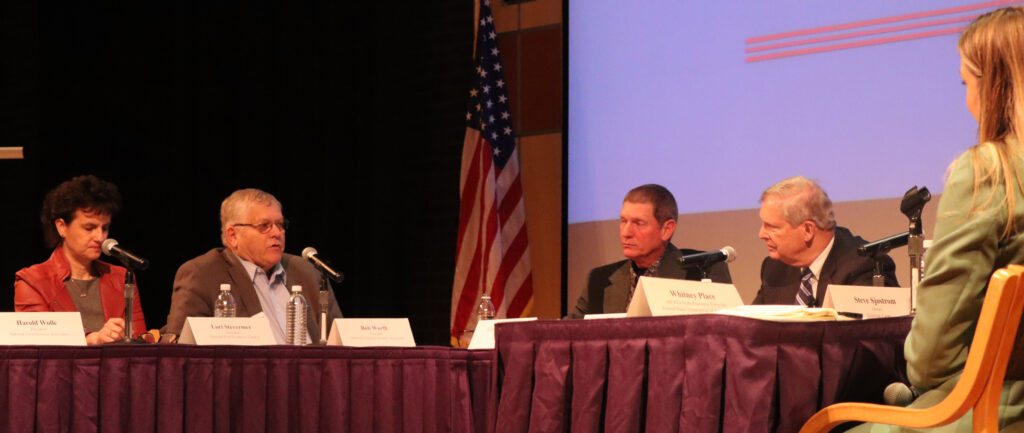Buffer bill update
Last Thursday, the Senate Environment Policy and Finance committee took up and passed SF2503, a bill that makes changes to last year’s controversial buffer law. Its companion, HF3000, was introduced in the House by Rep. Torkelson, R-Minn. The House bill was heard April 6.
The major changes to last year’s legislation are as follows:
- Eliminate jurisdiction of private ditches from the law
- Shift some jurisdiction over buffers from state to local agencies
- Defines that public waters as used in the law are those waters that are on the public waters inventory as provided in statute 103G.201
- Identifies that the width of the buffer on public drainage systems must be measured from the crown of the constructed channel or to the crown of the spoil bank, whichever is greater
The original bill changed the date for implementation from 2018 to 2025, but that provision was dropped because of objections by the Governor’s office.
Big three still on hold, second policy deadline has legislators’ attention
The big issues of the session, taxes, transportation, and bonding are still not moving with any great speed. The reconstituted conference committees for transportation and taxes have barely met. Individual bonding bills have been heard but few decisions have been made. April 8 is the deadline for all policy bills to have cleared both bodies. Hopefully, soon thereafter, the controlling House Republican caucus and the controlling Senate DFL caucus will make some decisions as to where they intend to spend the surplus funds available in the state’s coffers. After “targets” for that spending are set, the major issues should start to gain attention.
Organic agriculture, urban agriculture have taken center stage in House Agriculture committees
A growing number of bills regarding urban agriculture and organic agriculture are being heard throughout the legislative process.
Last week and this week, the House Agriculture Policy committee and House Agriculture Finance committee heard close to a dozen bills that relate to organic, indoor farm planning, or urban agriculture themes. The dominance of these types of bills is relatively new to the agriculture committees. Because of probable lack of a sufficient funding stream for the bills, most will not become law this session. The cumulative request for appropriations of these bills is approximately $62 million.
A great deal of money is already appropriated to the Minnesota Department of Agriculture (MDA) for several programs relating to these areas. Significant funds are allocated from the agri-fund for related themes. The total appropriation for the University of Minnesota Research and Extension is $43 million per year. Some of those funds also serve these areas.
There certainly is a place for all types of agriculture, but it is clear that as the urban influence in the legislature grows and cultural differences emerge, there will be increasing competition for financial resources once reserved for conventional agriculture.




